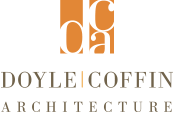The Public Library: The True Barometer of a Community’s Core Values
As chairman of the Ridgefield Library Board, I find myself repeatedly challenged to defend the need for a public library in the modern information era. It’s always the same argument, “computers, the internet, the Kindle, etc. will replace or significantly reduce the need for a physical location”, despite all the data locally and nationally supporting that the opposite is true. In fact, the electronic information age has only intensified the public library’s role. I can tell you that our local data here in Ridgefield supports the fact that library visits, material check-outs, program attendance and reference requests are up year after year.
The real problem is that uninformed, non-users have a simplistic misperception that the library is a building filled with shelves of just books, not an important source of all types of “free” electronic media including CDs, DVDs and audio books and perhaps the only local resource for verifiable electronic reference materials. For example, who is better suited to research a topic online, me with my computer at home/work, trying to filter through several hundred thousand hits on Google, which may or may not be accurate or a professional librarian, with access to subscription only databases, who is trained to weed out the superfluous and focus the search to the most pertinent and useful information? Most importantly, the librarian is then able to cross reference with “in house” hard copy media for additional resource.
Make no mistake; the public library is so much more than just materials. For young and old and everyone in between, it is a hub for interacting and connecting to other information, people and cultural events, a thought provoking environment to question, to share ideas and information. It is a place to attend program related performances and lectures, for small business meetings, group study, tutoring and book groups. All these different uses and functions warrant appropriate space. Even as technology rapidly changes the way information is delivered, the need for physical space will still be critical. The key to the future will be flexible open space, giving the library the means to adapt.
Throughout history, the “library” has stood as the intellectual and cultural center of great civilizations. The concept of the Public Library, free and open access to all, is one of the cornerstones of our great country and is supported by the Bill of Rights. I feel strongly, that the way people view their library, is the true barometer of that community’s core values. The role of the modern public library is to offer its patrons an experience as well as a service. Along with an excellent school system, it represents the community’s broad commitment to the pursuit of knowledge, a fundamental element to the furthering of human intellectual growth. One of our key supporters said it best, “Libraries are not just symbolic. These are important institutions for the preservation, proliferation and application of knowledge. It is good to have a physical place to go. It gives you the world.”
(For more information on the impact of libraries, go to: http://www.docstoc.com/docs/18009029/LibrariesHow-they-stack-up )



